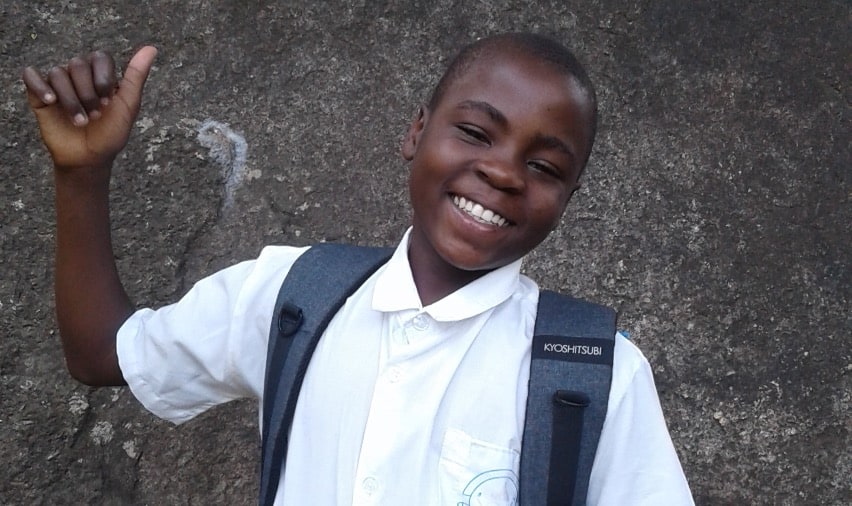Meet 16-year-old Peter, from Mwanza, Tanzania.
Growing up, Peter lived at home with his mother, father and his siblings. When he was younger, he didn’t want to go to school and had trouble at home as a result. This led him to run away when he was 12 years old, and he ended up living on the streets in Mwanza. Soon after, Peter joined a local gang and began to take drugs.
Whilst it is difficult to know exactly how many children are living on the streets at any one time, reports indicate that this is an escalating problem in major cities across Tanzania that is driven by a complex web of social and economic factors. Children living on the streets are extremely vulnerable and face an acute risk of violence, exploitation and addiction.
Compounding this issue is that only 11.5% of births in Tanzania are officially registered. The UN’s Sustainable Development Goals (SDGs) identify birth registration as a key challenge; for the majority of children who end up living on the streets, this creates a hidden population who face heightened difficulties in accessing support systems and public services.
WeSeeHope’s Street Work Programme exists to identify and build relationships with children and young people living on the streets, helping them to access mentorship, counselling and life skills support.
One evening, a social worker from our partner in Mwanza, Cheka Sana, met Peter while conducting outreach activities to engage with young people living on the streets and invited him to visit their nearby Day Care Centre.
At the centre, Peter was able to access a network of support. Initially, he took part in a variety of activities and games to make him feel comfortable and welcome. After a few weeks of visiting the centre, his confidence grew and he began to open up during counselling support sessions. Speaking with one of the social workers at the centre, he explained his situation at home and why he ended up living on the streets.
It was then that the Street Work Team at Cheka Sana began to trace the whereabouts of Peter’s family, eventually making contact with them. The family agreed to work with social workers at the centre with the aim of re-building their relationship with Peter, first through individual therapy sessions, then through sessions with the whole family.
After five months, Peter agreed to move back in with his family. He also re-enrolled at his primary school, excelled in his exams, and is now regularly attending secondary school.
Talking about his plans for his future, Peter said:
“I am going to study hard and perform well in my examinations. I want to become a social worker so that I will help other children on the street to know their rights and go back to their families.”
Peter is an inspiring advocate for childrens’ rights. Whilst he was attending the Day Care Centre, he was appointed secretary of the centre’s ‘Street Platform’. This is a safe space for young people living on the streets to meet and connect, as well as receive advice and support from social workers and staff at the centre.
The Cheka Sana team also encouraged Peter to apply to be a member of Child Rights Connect’s global Child Advisory Team. Peter was successful and represented Africa as a Child Human Rights Defender for two years!
Social workers from Cheka Sana continue to visit Peter and his family at their home, reporting that their relationship has improved. This is an important aspect of our Street Work Programme, as it ensures that children like Peter remain safe after reuniting with their families and do not feel forced to leave home once again.



